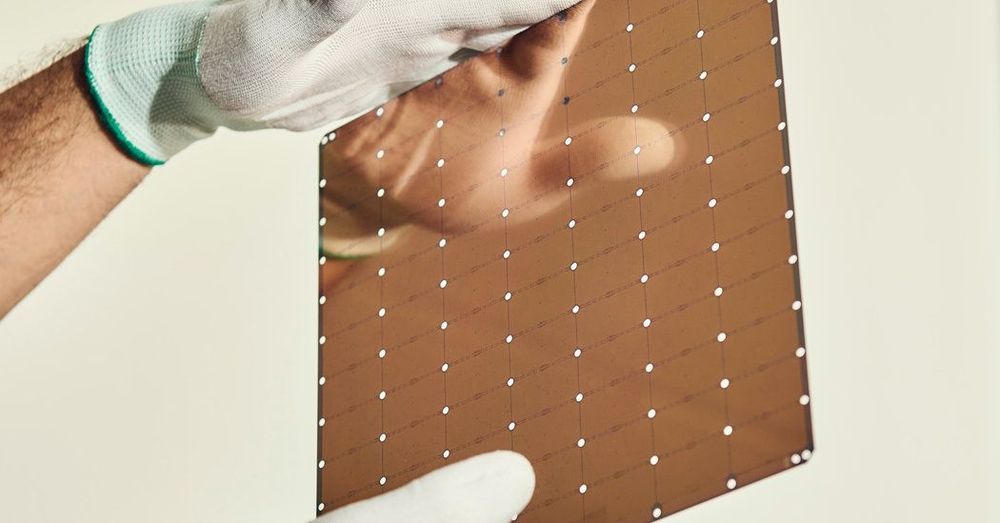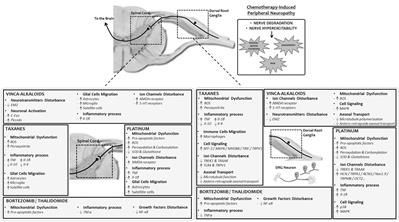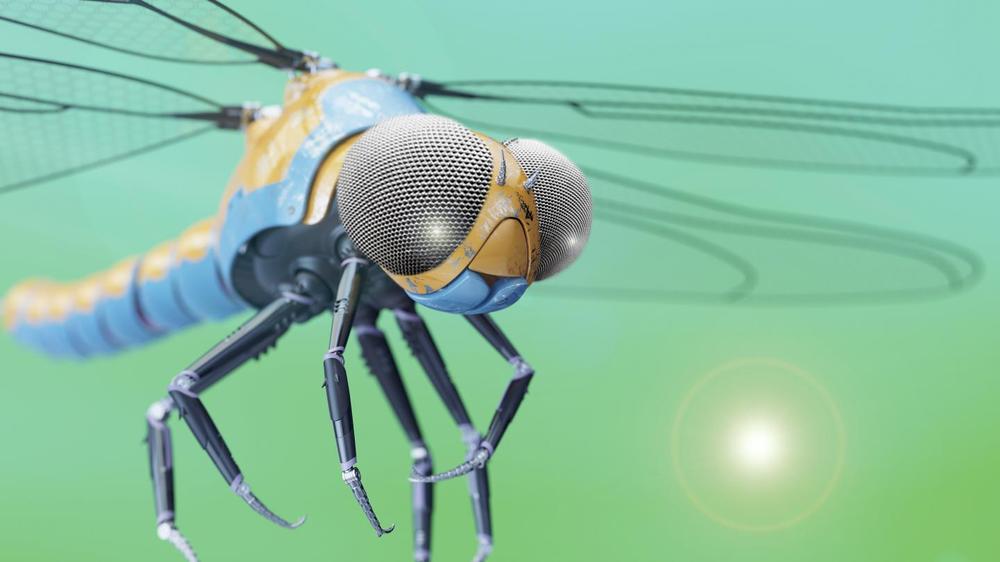The chip could improve how quickly artificial intelligence systems can…


3D printer manufacturer Electronic Alchemy has developed a system capable of additive manufacturing fully functional electronics. Named eForge, NASA intends to use the system during planetary space missions to 3D print chemical sensors on demand. Following the launch of eForge, the company is also now designing a device to recycle 3D printed electronics, further reducing NASA’s need for resupply missions.


► Second Lagonda concept ► All-electric, All-Terrain ► Revealed in full at Geneva
After kickstarting the Lagonda brand with the slick Vision Concept at the 2018 Geneva motor show, Aston Martin has returned to the 2019 Geneva motor show with an evolution of this idea called the All-Terrain Concept.
As you can probably guess from the name this new concept stands taller than last year’s Vision Concept, but retains the broad design strokes of its lower, svelte sibling. Not to mention its all-electric drivetrain.

Neurotoxic anticancer drugs, such as platinum-based anticancer drugs, taxanes, vinca alkaloids, and proteasome/angiogenesis inhibitors are responsible for chemotherapy-induced peripheral neuropathy (CIPN). The health consequences of CIPN remain worrying as it is associated with several comorbidities and affects a specific population of patients already impacted by cancer, a strong driver for declines in older adults. The purpose of this review is to present a comprehensive overview of the long-term effects of CIPN in cancer patients and survivors. Pathophysiological mechanisms and risk factors are also presented. Neurotoxic mechanisms leading to CIPNs are not yet fully understood but involve neuronopathy and/or axonopathy, mainly associated with DNA damage, oxidative stress, mitochondria toxicity, and ion channel remodeling in the neurons of the peripheral nervous system. Classical symptoms of CIPNs are peripheral neuropathy with a “stocking and glove” distribution characterized by sensory loss, paresthesia, dysesthesia and numbness, sometimes associated with neuropathic pain in the most serious cases. Several risk factors can promote CIPN as a function of the anticancer drug considered, such as cumulative dose, treatment duration, history of neuropathy, combination of therapies and genetic polymorphisms. CIPNs are frequent in cancer patients with an overall incidence of approximately 38% (possibly up to 90% of patients treated with oxaliplatin). Finally, the long-term reversibility of these CIPNs remain questionable, notably in the case of platinum-based anticancer drugs and taxanes, for which CIPN may last several years after the end of anticancer chemotherapies. These long-term effects are associated with comorbidities such as depression, insomnia, falls and decreases of health-related quality of life in cancer patients and survivors. However, it is noteworthy that these long-term effects remain poorly studied, and only limited data are available such as in the case of bortezomib and thalidomide-induced peripheral neuropathy.
Platinum-based anticancer drugs (i.e., cisplatin, oxaliplatin), proteasome/angiogenesis inhibitors (bortezomib/thalidomide), vinca alkaloids (i.e., vincristine, vinorelbine) and taxanes (i.e., paclitaxel, docetaxel) are the most common anticancer drugs used as first-line chemotherapy for several cancers, including colorectal, gastric, breast and lung cancers, and multiple myeloma. Despite their different action mechanisms, all these anticancer drugs share a common adverse and disabling effect for patients, namely CIPN (Balayssac et al., 2011). CIPN has a considerable impact on cancer treatments and their related symptoms severely affect patients’ daily activities and quality of life. Thus CIPN is often the main adverse effect leading to the reduction or discontinuation of chemotherapy.

Watch Ray Kurzweil’s talk at this years Singularity Summit live!! Go to http://SU.org/live for all the details. #SUSummit #RayKurzweil #Talk #Live
Register below to save your spot.

Solidia’s systems offer superior products that address the cement industry’s goal of reducing its carbon emissions, which contribute 3 to 5% of global CO2 pollution. Solidia’s patented processes start with an energy-saving, sustainable cement. Concrete made with this cement is then cured with CO2 instead of water. Together, the sustainable cement and CO2-cured concrete reduce the carbon footprint of cement and concrete by up to 70%. Additionally, up to 100% of the water used in concrete production can be recovered and recycled.
The U.S. Patent and Trademark Office issued three patents covering processes and products manufactured using Solidia Technologies‘cement and carbon-curing technology. The patents extend the range of applications for Solidia’s processes to include hollow core, pervious and aerated concrete.
This press release features multimedia. View the full release here: https://www.businesswire.com/news/home/20190516006022/en/

Global Quantum Secure Communication market analysis mainly introduces the changing market dynamics in terms of covering all details inside analysis and opinion, volume and value market share by players, by regions, by product type, by consumers and their price change details, cost/revenue structure. Additionally, the analysis of Global Quantum Secure Communication offers a detailed breakdown of key market growth drivers and limitation along with impact analysis of the same.
The Quantum Secure Communication market research report provides an in-depth analysis of the business space in question, alongside a brief gist of the industry segmentation. A highly viable evaluation of the current industry scenario has been presented in the study, and the Quantum Secure Communication market size with regards to the remuneration and volume has also been mentioned. The research report, in its entirety, is a basic collection of significant data with reference to the competitive terrain of this industry and the numerous regions where the business space has successfully established its position.
Request a sample Report of Quantum Secure Communication Market at: https://www.marketstudyreport.com/request-a-sample/2075428?u…ium=Deepak

WASHINGTON — If you’ve ever tried to swat a fly, you know that insects react to movement extremely quickly. A newly created biologically inspired compound eye is helping scientists understand how insects use their compound eyes to sense an object and its trajectory with such speed. The compound eye could also be used with a camera to create 3D location systems for robots, self-driving cars and unmanned aerial vehicles.
In The Optical Society (OSA) journal Optics Letters, researchers from Tianjin University in China report their new bio-inspired compound eye, which not only looks like that of an insect but also works like its natural counterpart. Compound eyes consist of hundreds to thousands of repeating units known as ommatidia that each act as a separate visual receptor.
“Imitating the vision system of insects has led us to believe that they might detect the trajectory of an object based on the light intensity coming from that object rather than using precise images like human vision,” said Le Song, a member of the research team. “This motion-detection method requires less information, allowing the insect to quickly react to a threat.”